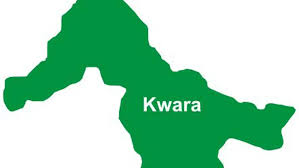
Daniel Otera
In Kwara State, a disturbing trend highlights the lengths some students go for survival, now being referred to as the Student Cell phenomenon. Across Kwara State University (KWASU), Malete, and the state polytechnic, young men and women struggling with financial pressures have turned to selling sperm and reproductive eggs. For many, the decision is not about choice but necessity, reflecting the severe economic hardships that force students into extreme measures just to pay school fees, buy food, or support their families.
The practice, sources say, is facilitated by intermediaries, often medical personnel, who connect willing donors with clients seeking reproductive cells. Male donors typically earn between N30,000 and N50,000 per transaction, while female donors command higher fees because of the complexity of egg extraction.
“The students approach us through WhatsApp groups or word of mouth,” a medical intermediary revealed, requesting anonymity. “They’re desperate for money to survive and continue their education.”
The Student Cell operates through a network where intermediaries maintain connections with fertility clinics and private clients, negotiating fees and arranging procedures—often bypassing essential medical and psychological counseling.
Mrs. Rukayat Motunrayo Shittu, representing Owode/Onire Constituency in the Kwara State House of Assembly, raised concerns during a recent plenary session.
“Many students, driven by financial hardship, are lured by monetary incentives without understanding the medical, psychological, social, ethical, and moral consequences,” she warned.
Shittu emphasized the serious health risks for female donors, including ovarian hyperstimulation syndrome, infections, and potential long-term fertility complications.
Medical experts have also expressed concern over the unregulated nature of these transactions. Dr. Adebayo Kolawole, a reproductive health specialist in Ilorin, noted, “These young people are potentially compromising their future fertility for immediate financial relief. The psychological impact of knowing biological children exist somewhere can be devastating.”
Student leaders acknowledged the existence of the practice, highlighting economic pressures as the main driver.
“When you haven’t eaten for two days and your parents can’t send money, these offers become very tempting,” admitted Fatima Abdullahi, a final-year KWASU student. “Some students have no other option.”
This Student Cell trend underscores Nigeria’s broader economic challenges, with inflation and rising living costs pushing students toward desperate measures. According to the Nigerian Bureau of Statistics, inflation has been high for a while now, intensifying financial pressures.
Parents’ associations expressed shock at the revelations, calling for more financial support and proper regulation of reproductive health services.
Mrs. Shittu urged the state government to launch campaigns to educate students on the risks of reproductive cell donation, stressing the need for urgent intervention.
As the economic crisis deepens, the Student Cell phenomenon paints a stark picture of survival, signaling the urgent need for sustainable student financial support and proper regulatory frameworks to protect the health, rights, and futures of young people across Kwara State.
